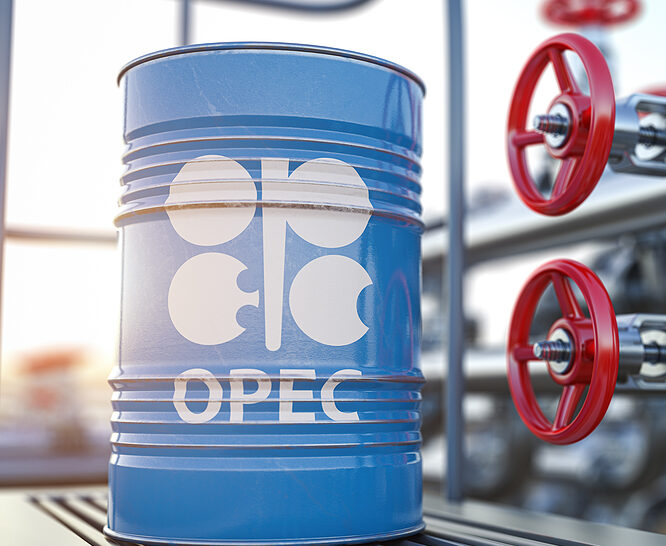When the Organization of the Petroleum Exporting Countries (OPEC) announced last week its members would be cutting oil production by a net of more than a million barrels a day, oil prices immediately jumped five percent. A week later, U.S. gas prices are up more than a dime a gallon, and the summer driving season is likely to send prices at the pump even higher.
But just days earlier, both New Hampshire members of the U.S. House voted against a bill promoting expanded domestic energy production.
Saudi Arabia, the United Arab Emirates, and Iraq are among countries dialing back production, while Russia said it would continue its present 500,000-barrel-per-day cut through at least the end of the year.
“The oil market has had a few days to digest the OPEC news and speculate about the reason. This has led to the price of oil stabilizing for now,” said AAA spokesperson Andrew Gross. “But the cost of oil accounts for more than 50 percent of what we pay at the pump, so drivers may not catch a break at the pump any time soon.”
And so why, some critics ask, isn’t the U.S. producing more domestic energy to protect consumers from higher prices and Western nations from political leverage by bad actors like Russia?
Jeff Eshelman, the president and CEO of the Independent Petroleum Association of America, said OPEC’s decision “emphasizes the importance of supporting U.S. oil production, with our federal government’s policies and with investment from the financial community.”
Eshelman noted that “producing oil is not like turning on a water faucet.”
“It takes months to get production back up,” he said. “If U.S. producers want to produce more oil, it takes six to nine months minimum to ramp up. The timeline for increasing production on federal lands is even longer because of a lengthy bureaucratic permitting process.”
Eshlemna pointed to legislative efforts such as the Lower Energy Costs Act, passed by the U.S. House of Representatives in March, which would if signed into law, “expedite the development, importation, and exportation of energy resources” in the United States through a variety of deregulatory and administrative mechanisms.
Like all but four of their Democratic colleagues, both Reps. Annie Kuster and Chris Pappas voted against the bill. Oil prices are particularly important in New Hampshire, where more than 40 percent of homes still burn oil for heat. Another 15 percent or so use propane, another fossil fuel product.
Other energy-focused groups have praised the House energy bill. The nonpartisan group Grow America’s Infrastructure Now said it would help with “streamlining the permitting process for building new energy infrastructure, supporting domestic energy production, and encouraging energy exports.”
Republicans, GAIN spokesman Craig Stevens said, “clearly demonstrated that U.S. energy is a priority and that lowering costs and increasing reliability for Americans is critically important.”
High energy prices are still fresh on the minds of many Americans after the dizzying energy price spikes of 2022. Russia’s invasion of Ukraine and a global commodity market teetering on the precipice of a potential global conflict sent U.S. gas prices into unheard-of territory last year, reaching an average of $5 per gallon nationwide for the first time in history. In November, home heating oil hit a record $5.81 per gallon in New Hampshire.
The U.S. is the world’s largest oil producer, pumping more than 11.2 million barrels daily in 2021, compared to Russia’s 10.1 million (before invading Ukraine) and Saudia Arabia at 9 million. Canada produces 4.5 million barrels a day.
Mark Le Dain, a former investment banker specializing in energy and infrastructure deals, writes at Forbes that Western nations like the U.S. and Canada are ceding power to OPEC by refusing to ramp up production during this volatile period. Instead, President Joe Biden kicked off his presidency by canceling the Keystone XL pipeline and ordering a “pause” in fossil fuel leases on public lands. He says to see if America has learned the lesson, watch the newly-approved Willow Project in Alaska.
“This is the largest proposed oil project on federal lands and is highlighted by environmentalists as the type of project that needs to be blocked. A few weeks ago, though, it received approval,” Le Dain writes. “It will be interesting to see if this is a trend or if the U.S. is comfortable ceding future oil price control to a collection of state actors.”

